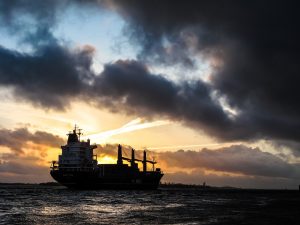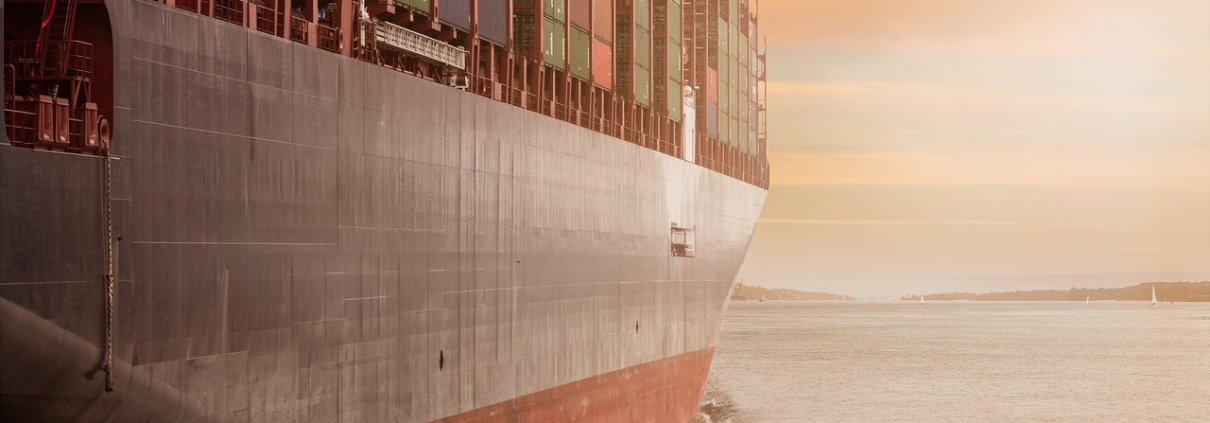International moving insurance and why you need it
When moving overseas, you definitely need moving insurance. That’s a fact. When there is a long way to go, for instance, settling in Brazil after Australia or Asia, a lot can happen to your belongings before they reach the final destination. So, you know what they say – better safe than sorry. The benefits of moving insurance are numerous. This is what everyone should know about international moving insurance.

Shipping your goods long distances comes with certain risks.
What could go wrong?
International shipping is usually safe. Still, accidents happen to the best of us. No matter how carefully we plan the move and how much experience we have, the things we fear most may occur.
For example, container ships may get hijacked, sink or catch fire. Improper wrapping can also be the cause of damage, especially if you do it yourself. That is why we recommend using professional packing services Brazil. Moreover, extreme temperatures might damage a lot of sensitive materials such as paper or fabric. Mold and mildew are your belongings’ greatest enemies. Heat and humidity are very common elements of Brazilian climate.

Always make a detailed inventory of all your belongings before shipping.
We hope this answers the question why you need international moving insurance. If you still want to risk, do it, but we highly discourage it.
Avoid over-insuring and under-insuring
Do not over-insure nor under-insure your possessions. The amount should be high enough to replace all items in case of complete loss or damage. If you under-insured, insurance would cover only a small portion of the replacement and you could end up paying the rest. On the other hand, only after the items have been assessed will the insurers cover their value. Therefore, do not over-insure, unless you feel like wasting your money.
Valuation (or released value) represents the amount of liability the movers will agree on for the value of the items you are moving in case something happens to them. This amount of money is too low to replace the valuables and significantly lower compared to what actual insurance pays.

The terms of your policy may exclude certain items or causes of loss, therefore, read the contract carefully before sealing the deal with your signature.
Let the movers pack everything
Insurance does not usually cover items that were not packed by professionals. We know DIY packing is cheaper and we understand that moving overseas is expensive enough but look at it from your movers’ perspective. Would you like to be responsible for another person’s mistake? Besides, there are other cost-cutting methods in case you need to move on a tight budget. Your movers want you to have the best moving experience without any complications. They undergo extensive training so as to perfect different packing techniques. They know how to pack everything from tiny glass dishes to bulky pieces of furniture. So, why not minimize the risks of damage during packing and shipment?
Types of international moving insurance
Good international moving companies Brazil will present to you different forms of moving insurance coverage to choose from. You know you should pick one, but which one? The one that fits your needs and your budget best, of course. These are the most common kinds of international moving insurance:
Legal liability – the basic level
This is basic moving insurance that must be included in your moving quote. The main flaw of this kind of moving insurance is that it does not cover partial damage. Unless something is totally destroyed, insurance does not cover it. The ocean carrier is responsible for a base value of the items which is determined on a per-package basis. What is considered a “package” depends on the company. Air shipment liability varies more since it is based on weight.
Total loss coverage
In the case of tragedy (complete damage, loss) your insurance will cover it. Partial damage is usually not covered. Another downside is that a detailed declaration of the value of your belongings is necessary which is not the most simple process. The cost ranges from 1% to 5% of the items’ declared value.
All-Risk coverage
This kind of insurance is recommended when moving overseas and it covers damage and loss of individual items. This usually means damage caused by fire, water, theft, improper storage, and failure to deliver. Some of these things can be the company’s fault. The downside is that it is more expensive than the previous two.

All-risk international moving insurance protects everything from both partial and total loss.
Third-party insurance
If your chosen moving company does not provide the kind of insurance you want or you wish to get better rates, you can find your own third-party insurance. In fact, most movers get moving insurance from third-party companies. Feel free to compare terms, rates and coverage limits before making a decision.
Add-On Insurance
This is a good choice if your items include a lot of electronics or furniture. There are several offers you can add to your insurance package.
- Pairs and Sets – for any items that come in sets or pairs. Such sets may lose value if only one item gets damaged. The moving company must replace the whole set if one item gets broken in transit.
- Electrical and Mechanical Derangement – for electronics. The movers must pay for the repairs or replace damaged electronics.
- Mold and Mildew – for furnishings and clothes. The movers must replace furniture if it gets damaged by mold or mildew.
Homeowners insurance
Do not assume you can make use of this kind of insurance. It is very unlikely that your homeowners’ insurance policy covers damage caused during international relocation. Such policies usually limit or exclude damage during transit or when the items are not near your home. Any damage outside the country is normally not covered.









